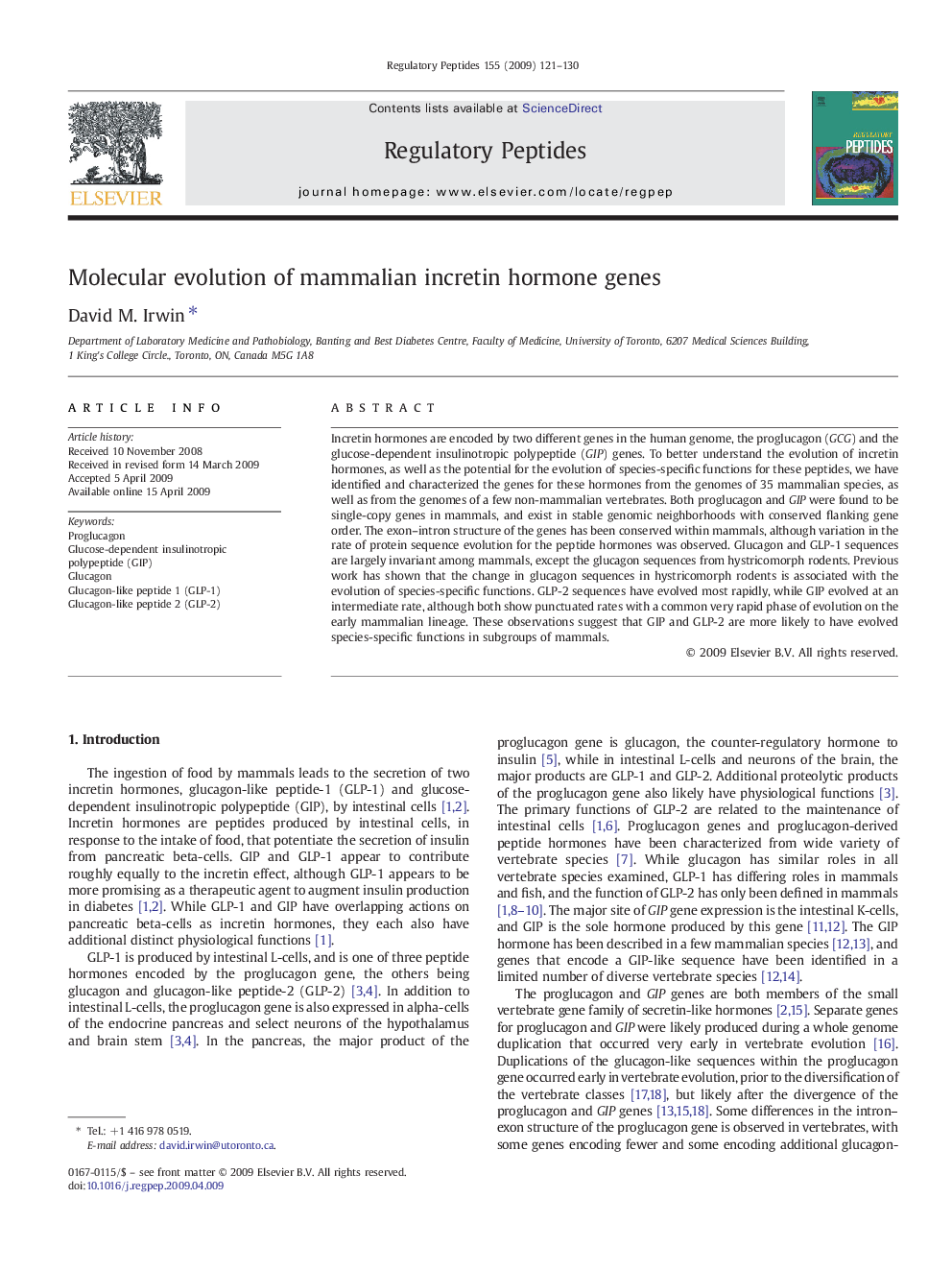| Article ID | Journal | Published Year | Pages | File Type |
|---|---|---|---|---|
| 2023100 | Regulatory Peptides | 2009 | 10 Pages |
Incretin hormones are encoded by two different genes in the human genome, the proglucagon (GCG) and the glucose-dependent insulinotropic polypeptide (GIP) genes. To better understand the evolution of incretin hormones, as well as the potential for the evolution of species-specific functions for these peptides, we have identified and characterized the genes for these hormones from the genomes of 35 mammalian species, as well as from the genomes of a few non-mammalian vertebrates. Both proglucagon and GIP were found to be single-copy genes in mammals, and exist in stable genomic neighborhoods with conserved flanking gene order. The exon–intron structure of the genes has been conserved within mammals, although variation in the rate of protein sequence evolution for the peptide hormones was observed. Glucagon and GLP-1 sequences are largely invariant among mammals, except the glucagon sequences from hystricomorph rodents. Previous work has shown that the change in glucagon sequences in hystricomorph rodents is associated with the evolution of species-specific functions. GLP-2 sequences have evolved most rapidly, while GIP evolved at an intermediate rate, although both show punctuated rates with a common very rapid phase of evolution on the early mammalian lineage. These observations suggest that GIP and GLP-2 are more likely to have evolved species-specific functions in subgroups of mammals.
